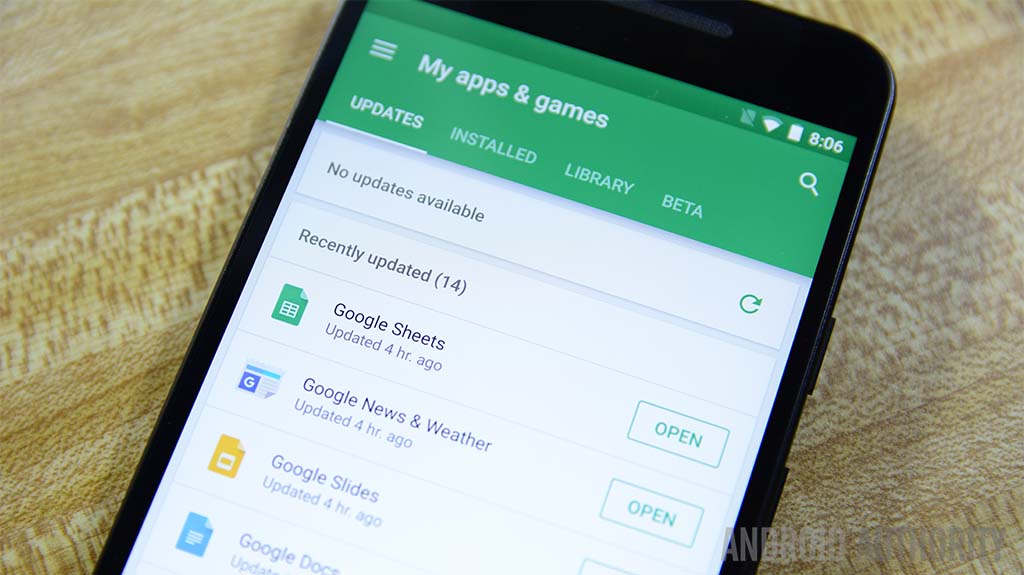Affiliate links on Android Authority may earn us a commission. Learn more.
Here's how Google fought sketchy Play Store apps in 2018

- Google revealed that Play Store app rejections were up 55 percent in 2018.
- It added that app suspensions increased 66 percent over the previous year.
- The company added that its Play Protect service now scans over 50 billion apps on devices each day.
The Google Play Store earned a reputation in its early days for being the Wild West compared to Apple’s App Store. Google has been cleaning up its act ever since thanks to a host of measures, and it’s now detailed its fight against bad apps and developers in 2018.
In a post on its Developers blog, Google revealed that rejected app submissions were up 55 percent in 2018, while app suspensions were up 66 percent. The company attributed the performance to tightened policies, automated measures, and human reviewers.
Apps from Google Play are eight times less likely to harm a user's device than Android apps from other sources.
The company added that Google Play Protect now scans over 50 billion apps on devices daily in order to suss out sketchy apps. It claims that, due to these measures, apps from Google Play are eight times less likely to harm a user’s device than Android apps from other sources.
It’s unclear which sources Google was referring to, but for the most part, it’s not hard to believe. Many alternative app stores lack features like Google Play Protect and the search giant’s wealth of resources. On the other hand, we have niche repositories like F-Droid, which only offers open-source apps for download (allowing users to inspect the code).
Google’s Play Store priorities for 2019
Google has outlined a few focus areas for 2018 and 2019, starting with user privacy. It noted a divisive policy to restrict SMS and call log permissions, which has had the side-effect of hobbling legitimate apps such as task automation and phone tracking tools. But Google says it’ll introduce more policies for device permissions and user data this year.
The company says it will also continue to focus on bad developers, noting that over 80 percent of “severe” policy violations were by repeat offenders. The firm says that when these developers are banned, they either create new accounts or buy developer accounts on the black market. Google says it’ll refine its “clustering” and account-matching technologies in order to keep these bad actors at bay.
Google noted that it’s also been focused on fighting potentially harmful apps, apps impersonating other apps, and apps with inappropriate content. The company said it used “advanced” machine learning models, analyses, and human feedback to find these apps.
The company acknowledged that bad apps do occasionally slip through the cracks, and there have been several examples in the past few months. Earlier this month, Trend Micro reported on over two dozen beauty apps that were showing users malicious ads and stealing their photos. The most popular offenders reportedly accrued over one million downloads each before being removed by Google.
The search colossus also took action after prominent developer Cheetah Mobile was accused of ad fraud. Google removed several apps by the studio after investigating the claims.
NEXT: Redmi Note 7 India launch date revealed — Expect 48MP phone on February 28